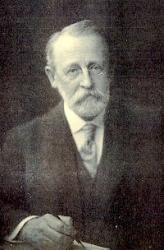Planning worship?
Check out our sister site, ZeteoSearch.org,
for 20+ additional resources related to your search.
- |
User Links
Search Results
Forsake me not! O Thou, my Lord, my Light!
Author: Mrs. J. P. Morgan Appears in 3 hymnals Matching Instances: 3
Forsake me not! O Thou, my Lord, my Light!
FORSAKE ME NOT
Meter: 10.10.10.4.4 Appears in 1 hymnal Matching Instances: 1 Composer and/or Arranger: William W. Gilchrist, 1846-1916 Tune Key: A Flat Major Incipit: 55555 51233 6 Used With Text: Forsake Me Not! O Thou, My Lord, My Light!
FORSAKE ME NOT
[Forsake me not! O Thou, my Lord, my Light!]
Appears in 2 hymnals Matching Instances: 1 Composer and/or Arranger: John E. Gould Incipit: 55113 33321 56146 Used With Text: Forsake me not! O Thou, my Lord, my Light!
[Forsake me not! O Thou, my Lord, my Light!]
Forsake me not! O Thou, my Lord, my Light!
Author: Mrs. J. P. Morgan Hymnal: Select Songs No. 2 #152 (1893) Languages: English Tune Title: [Forsake me not! O Thou, my Lord, my Light!]
Forsake me not! O Thou, my Lord, my Light!
Forsake me not, O thou, my Lord, my Light
Author: Mrs. J. P. Morgan; Christoph Christian Hohlfeldt Hymnal: Laudes Domini #116 (1884) Languages: English
Forsake me not, O thou, my Lord, my Light
Forsake Me Not! O Thou, My Lord, My Light!
Author: C. C. Hohlfeldt, 19th cent.; Mrs. J. P. Morgan Hymnal: AGO Founders Hymnal #30 (2009) Meter: 10.10.10.4.4 Languages: English Tune Title: FORSAKE ME NOT
Forsake Me Not! O Thou, My Lord, My Light!
Mrs. John P. Morgan
1845 - 1945 Person Name: Mrs. J. P. Morgan Author of "Forsake me not! O Thou, my Lord, my Light!" Virginia Woods, married John Paul Morgan in 1866. Known as Mrs. John P. Morgan. Translated several songs from German and Norwegian.
Dianne Shapiro (from email by Ottar Grepstad, General Director, Centre for Norwegian Language and Literature
Mrs. John P. Morgan
Christoph Christian Hohlfeldt
1776 - 1849 Author of "Forsake me not, O thou, my Lord, my Light" in Laudes Domini Hohlfeldt, Christoph Christian, was born Aug. 9, 1776, at Dresden. He became, in 1819, Advocate for the Poor (Armen-Advocat) at the Court of Appeal at Dresden, and died at Dresden, Aug. 7, 1849 (K. Goedeke's Grundriss, 1862 ff., iii. p. 183). His hymns appeared in his Harfenklänge, Dresden and Leipzig, 1823,1830 and 1836. The only one translation into English is:—
Verlass mich nicht! 0 du, zu dem ioh flehe. Supplication. In his Harfenklänge, 1836, p. 244, in 6 stanzas of 4 lines, entitled "Prayer." Translated as:—
Forsake me not! 0 Thou, my Lord, my light, by Mrs. J. P. Morgan, in the Christian Union, 1883. It is a translation of stanzas i., ii., v., and is given as No. 116 in Laudes Domini, New York, 1884. [Rev. James Mearns, M.A.]
-- John Julian, Dictionary of Hymnology
Christoph Christian Hohlfeldt
William W. Gilchrist

1846 - 1916 Person Name: William W. Gilchrist, 1846-1916 Composer of "FORSAKE ME NOT" in AGO Founders Hymnal Born: January 8, 1846, Jersey City, New Jersey.
Died: December 20, 1916, Easton, Pennsylvania.
Buried: Saint Thomas’ Episcopal Church, Fort Washington, Pennsylvania.
Gilchrist’s family moved to Philadelphia, Pennsylvania, when William was nine years old. He attended school there until the outbreak of the American civil war, when his father’s business failed and William had to seek other work. Having a good voice, he sang in choirs and choruses, first as a soprano, and later a smooth, flexible baritone. He began singing some of the principal parts in the Handel and Haydn Society, where his first real musical life began.
At age 19, Gilchrist began studying organ and voice with Professor H. A. Clarke, gradually concentrating on theory. At age 25, he spent a year in Cincinnati, Ohio, as organist and teacher, returning to Philadelphia to take post of choir master at St. Clement’s Protestant Episcopal Church. He later became conductor of the Mendelssohn Club, Tuesday Club of Wilmington, and Philadelphia Symphony Society.
Gilchrist was best known as a composer. His first success was in 1878, winning two prizes from the Abt Society of Philadelphia for best choruses for male voices. In 1881, he won three similar prizes from the Mendelssohn Glee Club of New York. In 1884, he took a $1,000 prize from the Cincinnati Festival Association; the judges included Saint-Saëns, Reinecke, and Theodore Thomas. This work was an elaborate setting of the Forty-Sixth Psalm, and was enthusiastically received. Gilchrist afterwards modified it and brought it out at the Philadelphia Festival in 1885.
Gilchrist also served as editor of the 1895 Presbyterian hymnal, as musical editor of The Magnificat in 1910, and wrote symphonies, chamber and choral music. His works include:
An Easter Idyll
Psalm 46 (New York: 1882)
One Hundred and Third Psalm
Ninetieth Psalm
Fifth Psalm
Prayer and Praise
De Profundis
The Rose (New York: 1887)
Ode to the Sun
A Christmas Idyll (Boston, Massachusetts: 1898)
The Lamb of God (New York: 1909)
www.hymntime.com/tch/
William W. Gilchrist


 My Starred Hymns
My Starred Hymns


